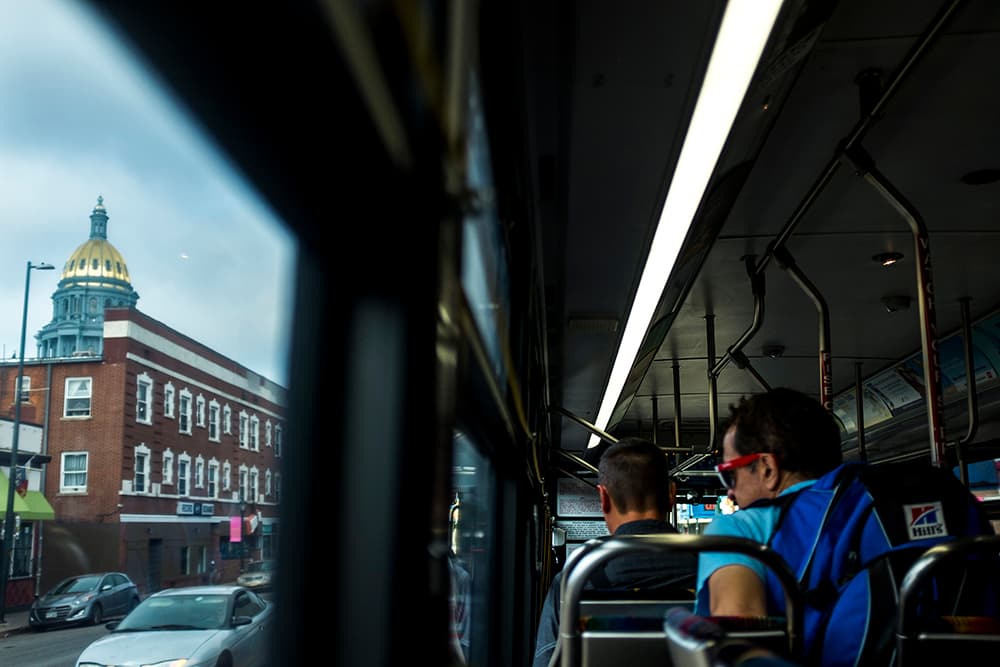
For years, evidence has mounted that spending a long time getting to work isn't good for your health. It can add a lot of calories and stress to your day, and some even believe it has the capacity to lower your intelligence.
And in the Denver metro area, longer commutes have become more common over the past few years, according to Census data. In this chart of the week, we're looking at how long you spend getting to work.
Before we get into how commute lengths have changed, let's just take a look at how long people spent getting to work in 2015. Most people spent under 30 minutes getting to work in the Denver metro area.
One bit of good news is that the Denver metro area has a smaller than average share of people spending more than 90 minutes getting to work. The national average is 3 percent, and in Denver, it was only 1.9 percent in 2015.
However, the share of people spending at least an hour getting to work has grown faster in the years with available data.
Nor can we blame these changes only on obviously worse traffic -- Texas A&M Transportation Institute's Urban Mobility Scorecard found that over 2013 and 2014, Denver commuters didn't have a longer annual traffic delay. Traffic may still play a part, just maybe not the main part.
Instead, like Seattle and California, some people may just live farther from their jobs. That's the case for Henry Coleman. He says that that living closer to his restaurant job in the Denver Tech Center area would cost about $300 or $400 more per month.
Of course, driving isn't the only way people get to work either. For Denverites using public transportation to commute, small changes can quickly ripple into big shifts in time. Coleman says RTD service changes have added an hour onto his commute, for example. D and H Line changes mean that he's had to build in more time in case of errors.
"I used to just take my time, eat my breakfast, sit around and watch the news. And then I knew every 10 minutes I had a train," he said. "Now I want to be there in case, like one time, one train didn't run and that put me almost 18 minutes behind. I had to rush to work."
On the train, Coleman likes to read, but sometimes he spends his hour thinking about what he has to do when he gets to work.
"Time seems to run faster now for me. It might not, but it seems like it," he said. "By the time I get [to work], it seems like I'm only going to have 12 minutes to be on the clock. Seems like I used to have 30 minutes."
You may remember that Coleman also used to get a discounted monthly pass from RTD's Nonprofit Program. He doesn't anymore. Changes in the administration of the program left some nonprofits unable to continue distributing discounted passes. RTD for its part, has decided not to add funding to the program this year.
Now Coleman pays for a full price pass, which for him, means working two more double shifts each pay period to comfortably afford a pass.
"If something changes and I can't get that extra shift, then I have to pull it from other bills and other obligations to make sure I have one," he said.
So when it comes to getting to work, Coleman finds that the cost of his monthly pass is a heavier burden than losing some of his time.
"I'd like to get more time to get things done in the morning, but it's not really a strain. But I can feel it. As the end of the week comes, I know I didn't get this done, didn't get that done, because I had to make sure I was on this track at this time," he said.
Do you have a long commute? Email me at [email protected], and if we get enough stories, we'll do a follow-up post.












